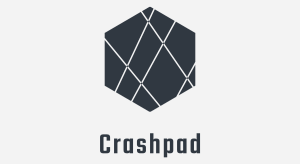Introduction
Investment banking focuses on advisory based financial transactions on behalf of individuals, corporate entities and governments. Investment Banks have the primary objective of raising capital for their clients, but also provide a range of other services related to investments and buying and selling of securities. This field can be divided into four main categories, namely, investment banking, sales and trading, research, and equity capital markets. These sectors are responsible for facilitating transactions such as mergers and acquisitions, maintaining relationships with institutional investors, reporting on various company prospects, and most importantly, pricing, sizing and preparing of a pitch to raise capital.
The evolution in the financial services industry has pushed investment banks to develop innovative strategies to remain successful in this ever developing new environment. As Fintech expands rapidly everyday, this contemporary ecosystem means investment banks need to streamline processes, verify transactions instantaneously, and operate securely and transparently. The leading institutions in the industry are eager to stay ahead of the game and they are doing so by heavily investing in Blockchain and related technologies. Some examples include JP Morgan’s Blockchain-based application Quorum, Goldman Sachs’ research and publications on the potential of Blockchain and Citigroup’s embrace of Digital Ledger Technology and potential launch of their own Blockchain and Citicoin.
But how is Blockchain relevant to investment banking and capital markets?
A Blockchain is essentially a database which has copies spread over multiple locations or nodes. The database contains records of transactions between two or more parties with relevant details about the transaction stored in each block. The information in the block is then verified by the network and appended to the chain of prior transactions (1). Many of the services provided by investment banks require a significant amount of internal work to ensure the processes run smoothly and safely. In the next section we will cover the different applications of blockchain technology in investment banking along with the major banks looking to capitalize on this technology.
Risk Management
When it comes to Risk Management, many view Blockchain as a viable solution to many risks that companies and banks face in the modern day. Blockchain’s transparent and irreversible nature would provide major safeguards against risks of improper data alteration and encourage efficiency. Smart contracts could be designed to embed liquidity, counterparty exposure, and other risk management metrics. Furthermore, they could be written to debit funds in order to satisfy the changing market conditions. For example, if the overall credit situation of a client deteriorates while a financial contract was on the books with a capital markets trading desk, an expedited notification could be communicated between the credit risk officers of the bank and the trading desk credit team (2). This near real time communication channel allows all relevant parties to receive notifications instantly, thus enabling them to take appropriate action.
According to a Goldman Sachs report, “Blockchain technology could streamline the clearing and settlement of cash securities, saving capital markets $2bn in the US and $6bn globally on an annual basis” (3).
‘Know Your Customer’ and ‘Anti-Money Laundering’ (KYC & AML)
Next, Blockchain could potentially play an important role in the KYC and AML space. In order to register new clients, financial institutions must undergo background checks and other means of verification of information in order to complete the process (4). However, the using Blockchain would allow much faster verification due to the immutable property and transparency of the ledger. Accessing a client’s risk tolerance, investment knowledge, and financial position would be made less cumbersome and would optimize the entire KYC process.
Streamlined Trade Settlement
The Smart Contract software can optimize the transfer of securities from seller to buyer. Think of a smart contract as a more advanced if-then statement from Excel applied to an entire network of an institution (2). Costly errors caused by manual processing can greatly be reduced as the smart contract automatically processes payments and completes the transaction if certain parameters are satisfied. Since all parties would have access to the same data, the transparency benefit of the ledger could eliminate the need for manual settlement confirmation and reduce reconcilement issues that often arise when transactions are not acted on properly (2).
Issuance of Securities
New equity IPO’s have large fees and commissions devoted towards various parties involved in the new security issuance. Blockchain has the potential to eliminate many of the intermediaries involved in the product issuance value chain due to the fact that all relevant groups can interact on the ledger. Sales teams do the majority of the intermediation job and according to a Capgemini report for a new equity IPO, 3.5% of the total issuance on average is charged as dues for the sales team, so an issue of $1 billion has $35 million worth of potential savings (3).
Moreover, blockchain also secures the ownership and custody of the assets, along with the benefit of having smart contracts capable of settling any agreement automatically.
Trade Surveillance
The use of Blockchain would be able to stop illegal trades, such as insider trading or artificial pattern trading, through the transparency created by the distributed ledger’s ease of access. The current more traditional security tracking measures put in place by Securities Exchanges are not always effective or able to spot or monitor these illegal methods. The use of Blockchain would be helpful for market regulators such as the American Securities Exchange Commission (SEC) to spot any abnormalities in trading patterns on a particular security or potentially nefarious actions like insider information trades (5).
Additionally, Blockchain’s immutable data property could help the SEC and banks ensure true ownership and exchange of assets. The Australian Securities Exchange plans to switch to using distributed ledger (blockchain) technology to clear and settle equities trades from 2020 to help cut costs (6).
Blockchain technology is still relatively new, so its implementation in capital markets raises many questions. Legal and regulatory aspects are the most discussed since authorities have not yet established clear cut laws and regulations. Whether a DLT system’s history can suffice for auditing procedures and how a legal framework can accommodate both smart and traditional contracts are questions that remain unanswered. Nevertheless, despite technical and regulatory uncertainties, the potential for blockchain implementation in capital markets cannot be overlooked. Many firms are in the exploratory phase and in this next section, we will review the research and implementations taking place at some major investment banks.
JP Morgan
J.P. Morgan has developed their own blockchain application, ‘Quorum,’ which is based on the distributed public blockchain network Ethereum. Since its inception in 2016, Quorum has attracted big-name partners and collaborators to implement Blockchain into their own framework. Quorum is most known for its custom-built smart contracts, which allow high-grade security and performance features for clients apart from a verifiable, swift method to track one’s investment. Moreover, a lucrative use for blockchain technology is to digitize various asset types and move them on to distributed ledgers, thus mitigating the need to transport quantities of a physical asset between bourses and custodians (7). J.P. Morgan has allegedly tokenized gold bars to allow miners to earn premiums on globally-traded markets. If tests are successful, the bank aims to apply similar concepts to different asset types (7). These movements signify the adoption of Blockchain in the future of trading and asset management. According to J.P. Morgan CIO Lori Beer, Quorum is following many paths, and J.P. Morgan uses blockchain technology to “simplify the payment process and to store customers’ information related to [their] KYC (Know Your Customer) policy.”
Goldman Sachs
Goldman Sachs has chosen to provide detailed consultations and Blockchain as a Service (BaaS) rather than launching its own Blockchain product. In April 2018, Goldman Sachs announced that they would open a trading desk for Bitcoin (BTC) and had just purchased the cryptocurrency exchange Poloniex (9). Goldman also provides Cryptocurrency Custody Services to protect the virtual assets of their clients (10). In 2016, Goldman Sachs produced a report which identified that $900m could be saved in reduced personnel and $700m could be saved from IT systems improvements. The report also claimed that Blockchain will be playing a role in reducing suspicious transactions, which will generate between $3bn and $5bn in cost savings. Finally, title insurance would see between $2bn and $4bn in savings through reductions in errors and manual processes. The report also examined Blockchain’s potential role in US energy markets, anti-money laundering (AML) and Know-Your-Customer (KYC) compliance, and underwriting title insurance(11).
Citigroup
Despite the slow progress on its promise to launch its own Blockchain and Citicoin, Citigroup has embraced Distributed Ledger Technology (DLT). They have recently been working with Nasdaq to offer a payment platform that automates reconciliation by using a distributed ledger to record and transmit payment instructions (12). In July 2018, Citigroup and Barclays announced that they would be participants in a trial run for LedgerConnect, which is a new IBM blockchain application. This app is designed to give banks one platform to deal with both AML/KYC compliance as well as loan collateral management (12). Citi also launched Digital Asset Receipt (DAR), which will allow direct investigation of cryptocurrencies like Bitcoin [BTC] without the need for owning the cryptocurrencies(13). The cryptocurrencies will be held by a custodian, while the Citigroup will issue the DAR. Citigroup will then send a notice to Depository Trust & Clearing Corp, a sort of Wall Street middleman, who will provide clearance and settlement services (13).
Is Blockchain Really Needed?
Blockchain’s primary advantage over the traditional database infrastructure
Is its ability to solve trust issues in digital banking security and also reduces coordination costs between different market participants. Depending on network and incentive design, Blockchain can help participants who do not trust each other to collaborate for the wellbeing of everyone in the network (3). Investment banks must consider which functions are most ‘broken’ in order to conduct a cost/benefit analysis of supplanting current systems with this new technology. Weighing out the pros and cons would be the best way for decision makers to see whether Blockchain is worth investing in.
Conclusion
The implementation of Blockchain is definitely in the growth stage and according to a report by Accenture, by 2025, blockchain adoption will be considered mainstream and essential to the capital market ecosystem (1). As new service providers and models emerge, deployment of Blockchain across numerous asset classes is expected to go viral and incumbent processes and services are forecasted to become obsolete.
The truth is, blockchain utilization in capital markets looks beyond the money transfer and tries to address more complex issues.
Reduction of counterparty risk, lowering of settlement times, improvement of contractual term performance, and increased regulatory reporting transparency all illustrate how Blockchain has the potential to become the backbone of the capital market infrastructure.
About Author
Saad Rasool is an Undergraduate Student at McGill University, studying Economics with minor concentrations in Finance and Computer Science. He has experience in research, teaching, business incubation and and is currently working a tech-consultancy firm in Montreal.
Citations
Blockchain Technology: Preparing for change. (n.d.). Retrieved from https://www.accenture.com/ca-en/insight-investment-bank-challenges-blockchain-technology
Team, E. (2018, March 01). Blockchain in Capital Markets. Retrieved from https://www.finextra.com/blogposting/15096/blockchain-in-capital-markets
3. Blockchain Applications in Capital Markets.pdf. (n.d.). Retrieved from https://drive.google.com/file/d/1mbOtf2yLfRJgNxZz5PxgxDFH0hehFG0v/view
4. Moyce, C. (2016, August 10). How Blockchain Can Revolutionize Regulatory Compliance. Retrieved from https://www.corporatecomplianceinsights.com/blockchain-regulatory-compliance/
5. Aguirre, G. (2018, January 29). Blockchain for Securities Trading: Black Swan or In-House Pet? Retrieved from https://blockchainatberkeley.blog/blockchain-for-securities-trading-black-swan-or-in-house-pet-618ee382f076
6.Duran, P. (2018, August 23). World Bank launches world-first blockchain bond. Retrieved from https://www.reuters.com/article/us-worldbank-cba-blockchain/world-bank-launches-world-first-blockchain-bond-idUSKCN1L80DP
7.J.P. Morgan to Use Ethereum-Based Quorum for Tokenizing Gold Bars in Pilot Experiment. (2018, November 01). Retrieved from https://cryptoslate.com/j-p-morgan-to-use-ethereum-based-quorum-for-tokenizing-gold-bars-in-pilot-experiment/
8.Berman, A. (2018, November 20). JP Morgan CIO: Blockchain Will Replace Existing Technology. Retrieved from https://cointelegraph.com/news/jp-morgan-cio-blockchain-will-replace-existing-technology
9.Peili, R. (2018, May 09). Goldman Sachs Plans On Joining The Blockchain Revolution. Retrieved from https://hacked.com/goldman-sachs-plans-on-joining-the-blockchain-revolution/
10.(n.d.). Retrieved from https://www.bloomberg.com/news/articles/2018-08-06/goldman-is-said-to-consider-custody-offering-for-crypto-funds
11. Rizzo, P. (2016, May 26). Goldman Sachs: Blockchain Tech Could Save Capital Markets $6 Billion a Year. Retrieved from https://www.coindesk.com/goldman-sachs-blockchain-tech-save-capital-markets-12-billion/
12. “A Closer Look at Citi’s Efforts in Blockchain and Crypto.” CoinCentral, 22 Aug. 2018, coincentral.com/citi-blockchain/.
13.V, Anvita M. “Citigroup Inc. Develops Digital Asset Receipt [DAR] to Investigate Cryptocurrencies.” AMBCrypto, AMBCrypto, 10 Sept. 2018, ambcrypto.com/citigroup-inc-develops-digital-asset-receipt-dar-to-investigate-cryptocurrencies/.




